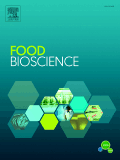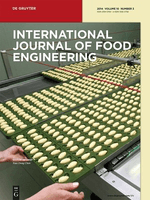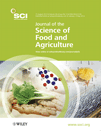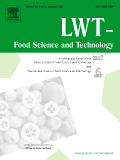
Brewing Science
Scope & Guideline
Innovating Brewing Practices Through Research
Introduction
Aims and Scopes
- Brewing Process Optimization:
Research dedicated to improving various stages of the brewing process, including mashing, fermentation, and filtration techniques to enhance efficiency and product quality. - Ingredient Characterization:
Focus on analyzing the properties of key brewing ingredients such as malt, hops, and yeast, including their chemical compositions and how these affect the final beer attributes. - Microbial Management:
Investigation of the role of microorganisms in brewing, including yeast behavior, spoilage organisms, and the use of microbial fuel cells for wastewater treatment. - Sustainability in Brewing:
Exploration of sustainable practices within the brewing industry, including waste management, resource efficiency, and the use of by-products. - Technological Innovations:
Research into new technologies and methodologies, such as AI applications in brewing, novel brewing equipment, and advanced analytical techniques to improve brewing outcomes.
Trending and Emerging
- Artificial Intelligence in Brewing:
A growing interest in the application of AI technologies to optimize brewing processes, enhance product quality, and streamline operations. - Sustainability Practices:
Increased research into using brewing by-products and waste reduction strategies indicates a significant trend towards environmentally friendly brewing practices. - Advanced Analytical Techniques:
The adoption of cutting-edge methods, such as LC-MS/MS and machine learning for data analysis, is on the rise, providing deeper insights into brewing ingredients and processes. - Health and Nutritional Aspects of Beer:
Emerging studies focus on the health impacts and nutritional profiles of beer, driven by consumer interest in healthier beverage options. - Microbial Community Dynamics:
Research into the dynamics of microbial communities, particularly in relation to fermentation and wood-aging processes, is gaining momentum as brewers seek to enhance flavor profiles.
Declining or Waning
- Traditional Brewing Methods:
Research on classic techniques such as Congress mashing has seen reduced emphasis, possibly due to the industry's shift towards more innovative and efficient brewing practices. - Basic Quality Assessments:
Studies centered on fundamental quality assessments of beer that do not incorporate advanced methodologies or technologies are becoming less prevalent, as the field moves towards more sophisticated analysis. - Historical Brewing Practices:
There appears to be a waning interest in the historical aspects of brewing, as the journal emphasizes contemporary issues and modern advancements over traditional practices.
Similar Journals

FOOD SCIENCE AND BIOTECHNOLOGY
Fostering Collaboration for Global Food SolutionsFOOD SCIENCE AND BIOTECHNOLOGY, published by the Korean Society of Food Science & Technology (KOSFOST), stands as a prominent peer-reviewed journal dedicated to advancing knowledge in the fields of food science, biotechnology, and applied microbiology. With ISSN 1226-7708 and E-ISSN 2092-6456, this journal serves as a pivotal platform for disseminating high-impact research from South Korea and beyond, reflecting a robust Q2 ranking in multiple categories including Applied Microbiology and Biotechnology, Biotechnology, and Food Science as of 2023. The journal's influence is further emphasized by its positions in various Scopus ranks, where it showcases a commendable percentile ranking in Agricultural and Biological Sciences and Biochemistry. Although access options remain limited, the journal’s objectives revolve around the publication of innovative research, fostering interdisciplinary collaboration, and facilitating the exchange of ideas among a diverse community of researchers, professionals, and students. Whether you are involved in food technology, microbial biotechnology, or nutritional sciences, FOOD SCIENCE AND BIOTECHNOLOGY are instrumental in shaping the future of these critical fields, propelling advancements that enrich our understanding of food systems and health.

Food Bioscience
Shaping the Future of Food Science with Cutting-Edge ResearchFood Bioscience is a leading peer-reviewed journal published by Elsevier, dedicated to advancing the understanding of the complex interplay between food science and biosciences. With an impressive Impact Factor that places it in the Q1 and Q2 quartiles for Food Science and Biochemistry respectively, the journal consistently ranks among the top publications in its field, reflected in its Scopus rankings (Rank #83/389 in Food Science and Rank #175/438 in Biochemistry). Since its inception in 2013, Food Bioscience has fostered a multidisciplinary approach, bridging gaps between research in agricultural, biological, and food sciences, thus encouraging innovative solutions to the pressing challenges facing the global food supply chain. Although it currently operates under a subscription model, the journal is committed to disseminating high-quality research, making significant contributions to both academic scholarship and industry practices. Researchers, professionals, and students alike are invited to explore the wealth of knowledge contained within its pages as it plays a pivotal role in shaping the future of food bioscience.

Kvasny Prumysl
Advancing the Art and Science of Brewing.Kvasny Prumysl is a distinguished open-access journal dedicated to the field of brewing science and technology, published by the Research Institute Brewing & Malting. Since its inception in 2019 as an open-access platform, Kvasny Prumysl aims to provide a comprehensive forum for researchers, professionals, and students in the brewing sector to share cutting-edge research, innovative methodologies, and significant advancements in brewing science. With an ISSN of 2571-3868 and an E-ISSN of 2570-8619, this journal fosters collaboration and knowledge exchange within the brewing community, contributing to sustainable practices and excellence in brewing. Based in Prague, Czech Republic, Kvasny Prumysl seeks to elevate its global presence, ensuring that the latest findings are accessible to all through its open-access model. The journal invites submissions through a rigorous peer-review process, reinforcing its commitment to high-quality research in the brewing industry.

Microbial Cell Factories
Fostering Global Collaboration in Microbial ResearchMicrobial Cell Factories is a premier peer-reviewed journal dedicated to the field of applied microbiology and biotechnology, published by BMC in the United Kingdom since 2002. With an impressive impact factor, this journal has consistently ranked within the Q1 category across multiple disciplines, including Applied Microbiology, Bioengineering, and Biotechnology, showcasing its significance in the scientific community. The journal’s commitment to open access ensures that innovative research is freely available to researchers, professionals, and students worldwide, fostering collaboration and knowledge dissemination. With a strong presence in Scopus rankings, Microbial Cell Factories is recognized for its contributions to advancing the understanding and application of microbial processes in production systems, making it an essential resource for those involved in the microbiological and biotechnological fields.

Izvestiya Vuzov-Prikladnaya Khimiya i Biotekhnologiya
Exploring the Intersection of Theory and PracticeIzvestiya Vuzov-Prikladnaya Khimiya i Biotekhnologiya, published by Irkutsk National Research Technical University, is a prominent open-access journal dedicated to advancing the fields of applied chemistry and biotechnology. Since its inception in 2011, this journal has provided a platform for the dissemination of significant research findings, innovative techniques, and technological advancements that bridge the gap between theoretical frameworks and practical applications. The journal is indexed in various databases, ensuring that published works reach a global audience of researchers, professionals, and students eager to explore the latest developments in these critical disciplines. With its commitment to open-access publishing, Izvestiya Vuzov-Prikladnaya Khimiya i Biotekhnologiya plays a vital role in fostering collaboration and knowledge sharing within the scientific community, thus contributing to the advancement of both fields in a rapidly evolving technological landscape.

Journal of Chemistry and Technologies
Unveiling Breakthroughs in Chemistry and Engineering.The Journal of Chemistry and Technologies, published by OLES HONCHAR DNIPROPETROVSK NATIONAL UNIVERSITY, is an open access journal dedicated to advancing knowledge in the broad fields of chemistry and chemical engineering since its inception in 2013. With ISSN 2663-2934 and E-ISSN 2663-2942, this journal provides a vital platform for researchers and professionals, particularly in Ukraine and beyond, to share innovative research findings and contemporary technological advancements. Currently ranked in the Q4 quartile in both Chemical Engineering and General Chemistry for 2023, it serves as an enriching resource for those interested in emerging trends and interdisciplinary studies within these domains. The journal adheres to high academic standards while fostering collaboration in the scientific community by offering open access articles that ensure visibility and accessibility to a global audience. As an important part of the academic landscape, the Journal of Chemistry and Technologies aims to inspire future research and development, paving the way for new discoveries and applications in chemistry-related fields.

International Journal of Food Engineering
Transforming Food Science with Interdisciplinary InsightsThe International Journal of Food Engineering, published by WALTER DE GRUYTER GMBH, serves as a pivotal platform for cutting-edge research in the field of food engineering. With an ISSN of 2194-5764 and an E-ISSN of 1556-3758, this journal focuses on innovative technologies, production processes, and quality control within food systems. Located in Germany, the journal has gained notable recognition, as reflected in its Scopus rankings, which place it within the 61st percentile in miscellaneous engineering and the 50th percentile in food science. Although it operates under a traditional access model, the journal's striking category quartiles signify its importance: achieving Q2 in Engineering and Q3 in both Biotechnology and Food Science in 2023. By fostering interdisciplinary research, the International Journal of Food Engineering aims to connect scientists, engineers, and industry professionals, ultimately contributing to advancements in food safety, sustainability, and nutrition. Join a vibrant community of experts driving innovation and addressing global food challenges through your contributions to this esteemed journal.

BIOSYSTEMS ENGINEERING
Empowering scientists to engineer a better biosphere.BIOSYSTEMS ENGINEERING, published by Academic Press Inc. Elsevier Science, is a leading journal that has established itself as a key contributor in the fields of agronomy, crop science, animal science, food science, soil science, and control systems engineering. With an impressive position in the 2023 Category Quartiles, featuring Q1 rankings in Agronomy and Crop Science, Animal Science and Zoology, Food Science, and Soil Science, alongside a Q2 ranking in Control and Systems Engineering, this journal stands at the forefront of innovative research. Currently indexed in Scopus, it boasts a commendable track record, with its Agricultural and Biological Sciences rankings placing it in the 95th percentile for Agronomy and Crop Science and the 90th percentile for Soil Science, among others. With a commitment to disseminating critical advancements and fostering scientific dialogue, BIOSYSTEMS ENGINEERING offers an invaluable platform for researchers, professionals, and students alike, seeking to advance their understanding and application of engineering principles in biological systems. As a hybrid journal that provides both subscription and open access options, it ensures broad accessibility to high-quality research that shapes the future of sustainable agriculture and biological systems.

JOURNAL OF THE SCIENCE OF FOOD AND AGRICULTURE
Pioneering research for a secure food system.Welcome to the Journal of the Science of Food and Agriculture, a leading academic publication in the realms of Agronomy, Food Science, Biotechnology, and Nutrition. Founded in 1950 and published by Wiley, this journal has established itself as a vital resource for researchers and professionals committed to advancing knowledge and innovation in food and agricultural sciences. With a remarkable impact factor reflective of its esteemed status—ranking Q1 in Agronomy and Food Science and Q2 in Biotechnology and Nutrition, this journal stands at the forefront of critical research, featuring rigorous peer-reviewed articles that span a wide array of topics. Access options are available through institutional subscriptions, ensuring that indispensable research reaches both scholars and practitioners alike. As it converges into 2024, the journal continues to address key challenges and opportunities within the field, making it essential reading for anyone interested in sustainable agricultural practices and food security. Engage with cutting-edge research that shapes our understanding of food systems and agricultural advancements.

LWT-FOOD SCIENCE AND TECHNOLOGY
Championing excellence in food science research.LWT - Food Science and Technology is a premier academic journal published by Elsevier, specializing in the multifaceted fields of food science and technology. With a distinguished presence since its inception in 1973, this journal has evolved to become a vital resource for researchers and professionals aiming to advance knowledge in food safety, preservation, processing, and sensory analysis. Currently ranked in the Q1 quartile of food science journals, it holds an impressive Scopus ranking of 22 out of 389 in the Agricultural and Biological Sciences category, placing it in the 94th percentile. While certain articles may be available via subscription, LWT is committed to disseminating cutting-edge research that enhances food quality and innovation. This journal not only serves as a critical platform for the exchange of scientific ideas but also addresses contemporary challenges in food technology, ensuring that it remains essential for scholars, industry professionals, and students alike seeking to contribute to and stay abreast of advancements in the field.